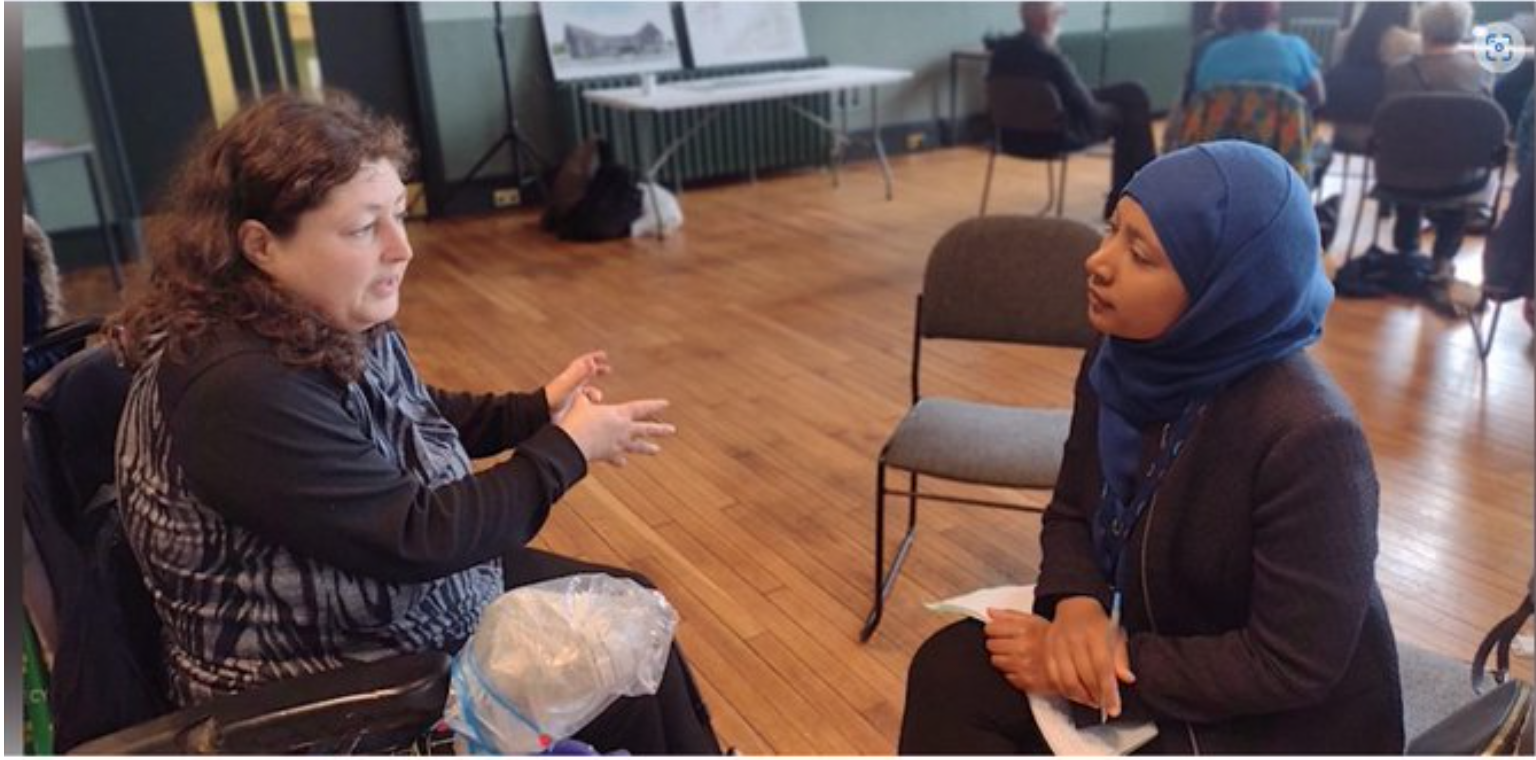Sophie King interviews Professor Diana Mitlin
At our next event on Thursday 1st November, Professor Diana Mitlin will address this question by engaging critically with the challenges, complexities, and possibilities that we have been discussing throughout the year. In the short interview that follows below, Diana gives us a sneak preview…
The penultimate session in the Housing Futures event series before our final report launch, takes a fresh lens to the challenge of meeting diverse housing needs while ensuring housing policy and practice is shaped by communities themselves, including those living on low incomes.
There is an increasing excitement mounting about community-led housing across the UK at present, but do we fully understand this opportunity? A key issue arising out of the Housing Futures research to date is that ‘community-led’ is variously interpreted and defined. There are varying depths of understanding about what achieving a genuinely community-led process requires and the kinds of benefits that can accrue from protecting this principle within community-led housing initiatives. To advance our thinking and understanding about these issues, we will be joined by Diana Mitlin of the Global Development Institute and activists from the Kenyan Slum Dwellers Federation Muungano Wa Wanavijiji, the Kenyan affiliate of Slum/Shack Dwellers International (SDI), one of the largest grassroots movements in the world.
At the beginning of this year, the Housing Futures steering group invited Diana to help us explore these ideas further, playing the role of critical friend throughout our events series, listening to the key issues that arise through our public debates in order to sharpen our analysis for future ways of thinking about housing alternatives. With professional experience in the UK civil service, civil society, and academia, Diana has a cross-cutting perspective on the challenges of inclusive service delivery for diverse needs and particularly for low-income groups. This perspective draws on over two decades of experience working with shelter movements around the world.
Read on to hear Diana’s initial reflections on these issues...
SK: You have been playing a "listening" role throughout the Housing Futures events series. What are your reflections so far about the commonalities and differences across the UK and the global South in relation to attempts to promote community-led housing alternatives that can secure affordable housing for low income communities?
DM: Social movement innovations such as participatory budgeting from Brazil have become widely recognised. There are other really important initiatives. In Thailand there is a savings movement that has secured government funds to improve the homes of over 100,000 families through cooperatives, and set up community funds in 116 cities. On the 1st November those at the Housing Futures event will hear from Muungano wa Wanavijiji how they got local authority support to re-plan a low-income neighbourhood of 105,000 households; a real opportunity for new improved solutions for housing needs!
SK: What does a genuinely community-led process look like in your experience? What is the value in community-led housing processes?
DM: That’s a great question. I am tired of academics saying that “community participation” does not work. Just like it takes time to learn any new skill so it takes time for communities to build up their ability to manage community-led housing. A community housing process is one in which all the residents are involved in making choices about what will work for them and their family. That means thinking about finance – and savings helps here – but also thinking about what is going to fit with their work and other family needs such as schools. Of course families think about these things individual. A community process involves groups of families working together – at the neighbourhood level – to develop new and better options. Families can work together to negotiate access to finances – lobbying government to support them. Families can also work together to provide themselves with services that make their lives better; in the global South this might be better access to water and food and childcare. Priorities in the UK can be pretty similar. A strong community process does not mean that they are left to do things on their own; it means that they are able to “amplify their voice”, challenging professionals that spend money allocated to that neighbourhood in ways that do not maximise the value of this support.
SK: What kinds of thinking will help us tease out new ways forward that meet a diversity of needs and interests?
DM: In my experience sharing values about what kind of place we want to live, about what kind of society we want to be part of is really important. Then communities – groups of organized residents – need to see how housing is improved around the world. SDI groups regularly do exchanges – sometimes with local officials – to see how organized communities in other cities have addressed their needs. These exchanges help people to see and understand new options; and “step outside the box” of present solutions. For example, the UK government is meant to be delivering 1.5 million houses by the end of 2022. And they estimate that the budget for this is £44 billion. How can that money be best spent to address the needs of all of those without adequate housing?
There are some key principles that I have learned from SDI. First, accept that a decent society helps all of those in need. Solutions have to be universal not partial. Second, communities need to be organized so that they can work out what is going to work for everyone living in their neighbourhood; local communities know who lives there and what they need better that outsiders do. But communities may need to spend some time building up this knowledge – data gathering - and building trust between neighbours. Third, as communities become organized, federate communities across the city. Federated communities can share information between them. Fourth, encourage those federated communities to work at the city scale with their local authorities. Start from what has worked well, work out learning needs, have exchanges with other cities, and plan how everyone’s housing need can be addressed.
The final report of the Housing Futures partnership will be launched in conversation with Mayor Paul Dennett, lead for the Greater Manchester Combined Authority’s housing strategy review on Saturday 8th December 2018. Register here!
16 October 2018





